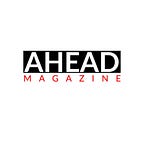Returning to teaching in COVID-19 — A Guide to Supplementary Resources for Medical Students
By Connor Dibblin, 4th Year Medicine, King’s College London
The global coronavirus pandemic has undoubtedly caused massive disruption to everyone’s lives. Students around the world have had to adapt to a new normal of teaching over the last few months. Gone are the days of lectures and seminars, now replaced with Microsoft teams, zoom webinars and google drive PDFs. The disruption to university teaching has spread across two academic years. As students, we have to find innovative ways to make up for missed teaching opportunities.
While university students from all courses have lost out on hours of face-to-face teaching, there are students whose learning cannot be easily moved online. One such group of students is medical students.
Medical students, and other healthcare students in general, are in an entirely new situation with their teaching. The majority of classes can be delivered online, with many medical students readily admitting that they actually prefer to watch lectures online. Small group tutorials and seminars are easily swapped for video-calls and webinars. There are, however, some teaching sessions that don’t lend themselves to remote learning. The main two of which are: anatomy dissection for preclinical students and clinical placements for students in their final years.
Online alternatives to these sessions may not be obvious at first. However, modern digital technologies have made it possible to reimagine how medical students can receive this teaching. For the past decade, universities have been trying to adapt their curricula to the modern age. The number of lectures has been decreasing and wet-lab projects like anatomy dissection and histology are being replaced with technology-based alternatives.
For many medical students, the coming months will bring with them a return to clinical teaching. For others, universities have indicated that remote learning will remain in place until 2021. For all healthcare students, the first term of the 20/21 academic term is not going to be ‘normal’.
There are, however, many resources available for students to supplement their learning over the summer and throughout their return to university. Some of the best resources I’ve used myself are listed below:
- Online Webinars — delivered by doctors and senior medical students hosted by multiple platforms. There have been loads of organisations hosting these webinars, some existed pre-lockdown while others have sprung up purely to provide us all with great free content. Some noteworthy providers are: [Becoming a Doctor](http://becomingadr.org) (you can access all of the tutorials they gave oer the summer through their website); [BiteMedicine](https://www.bitemedicine.com/covid-19) (they have made more of their content available to those on a free membership); and [SMILE](https://www.facebook.com/groups/257148981982669/) (which stands for Sustaining Medical Education In a Lockdown Environment, there are a tonne of free webinars posted in this Facebook group which currently boasts almost 14K members). Recommended for spending an hour or two revisiting a topic you feel you’ve forgotten, or as supplementary learning to a missed lecture.
- Tweetorials — Many medical educators, doctors and even medical students provide a ridiculous amount of free advice and learning through twitter. There is a fantastically proactive #MedTwitter and #MedStudentTwitter community, where you will almost always be able to find someone happy to answer a specific question if you have one. A ‘Tweetorial’ tends to specifically refer to a twitter thread that may cover a topic or a case study. It is advisable to have a quick check regarding the legitimacy of the author before relying on twitter for information! I would recommend @medtweetorials, who finds and redistributes medical tweetorials from all over twitter. Reccommended for on the go learning and interesting cases to get you in the mood for wards.
- Podcasts — Podcasts are a great on-the-move alternative to lectures and textbooks, but often aren’t able to delve into topics with the same depth or focus. Before using podcasts to supplement your learning I recommend checking who’s hosting the podcast (are they going to know more than you) and who’s paying for the podcast (advertisers may ask the hosts of podcasts to promote specific products, content or resources). Recommended for learning while completing other tasks, like exercise, life admin or chores.
